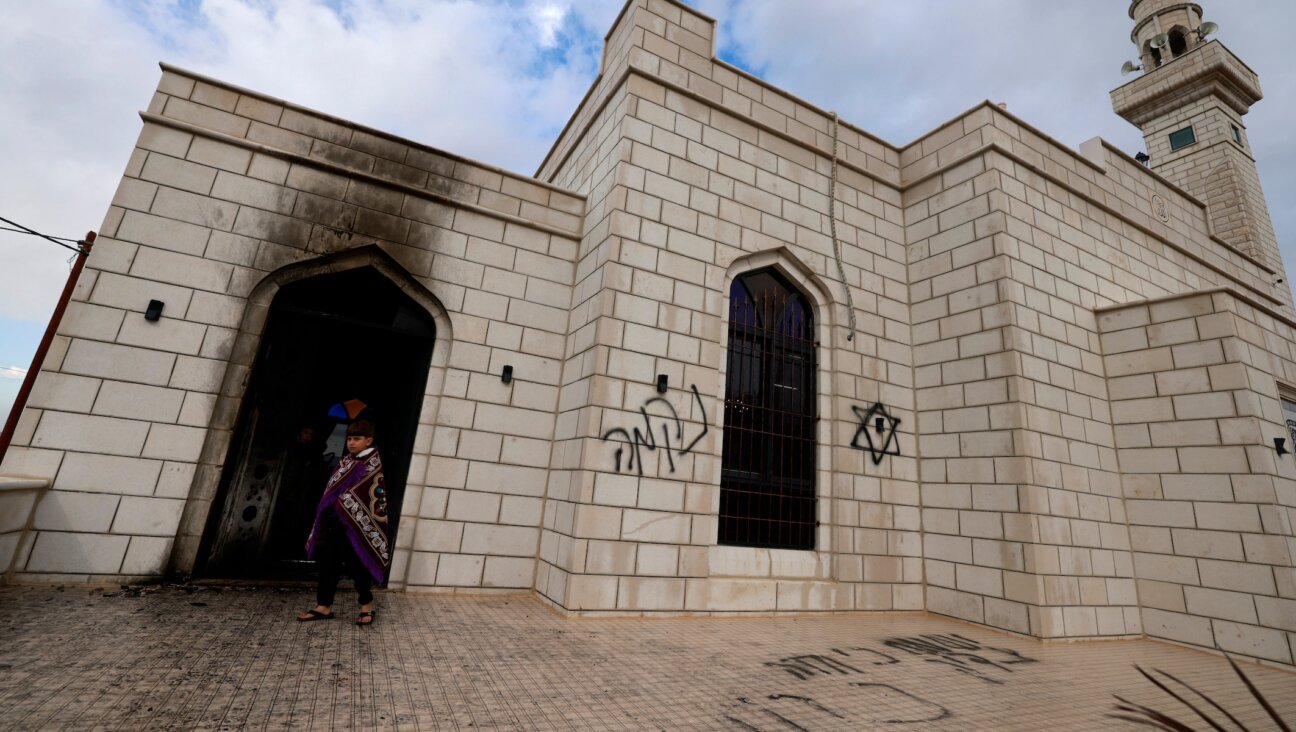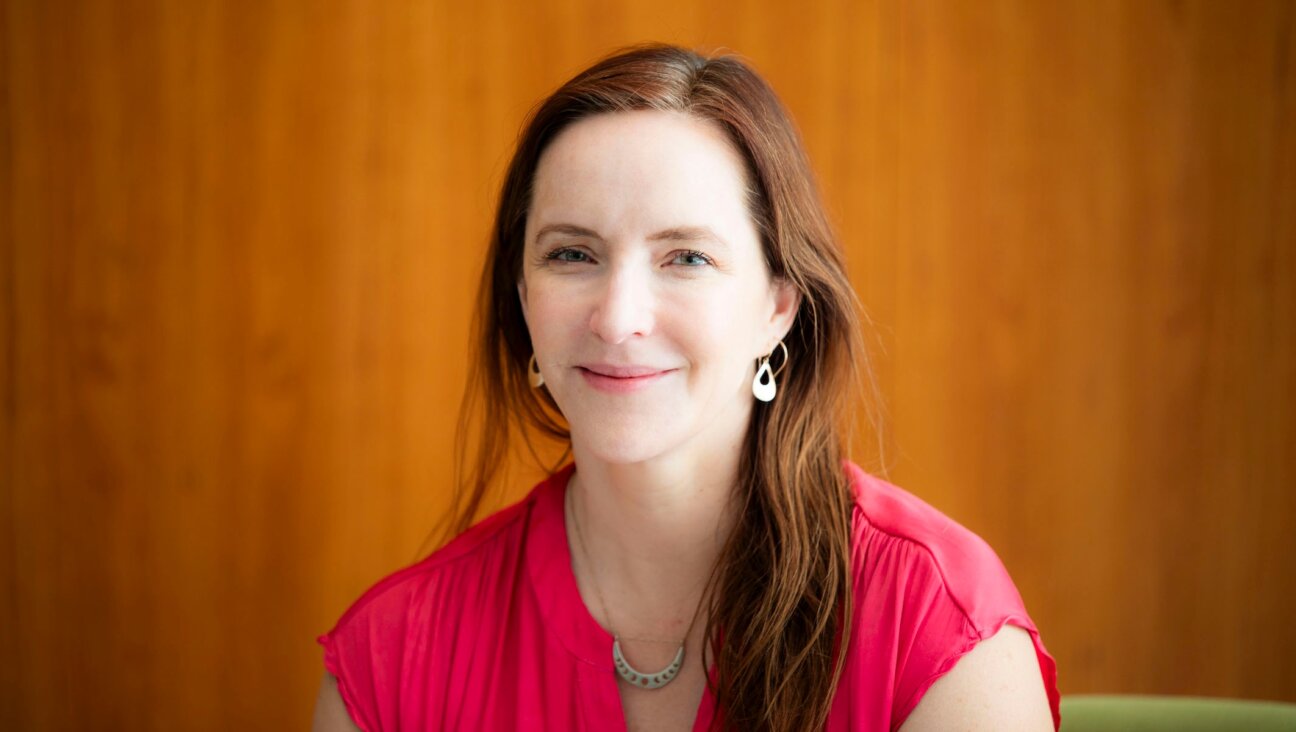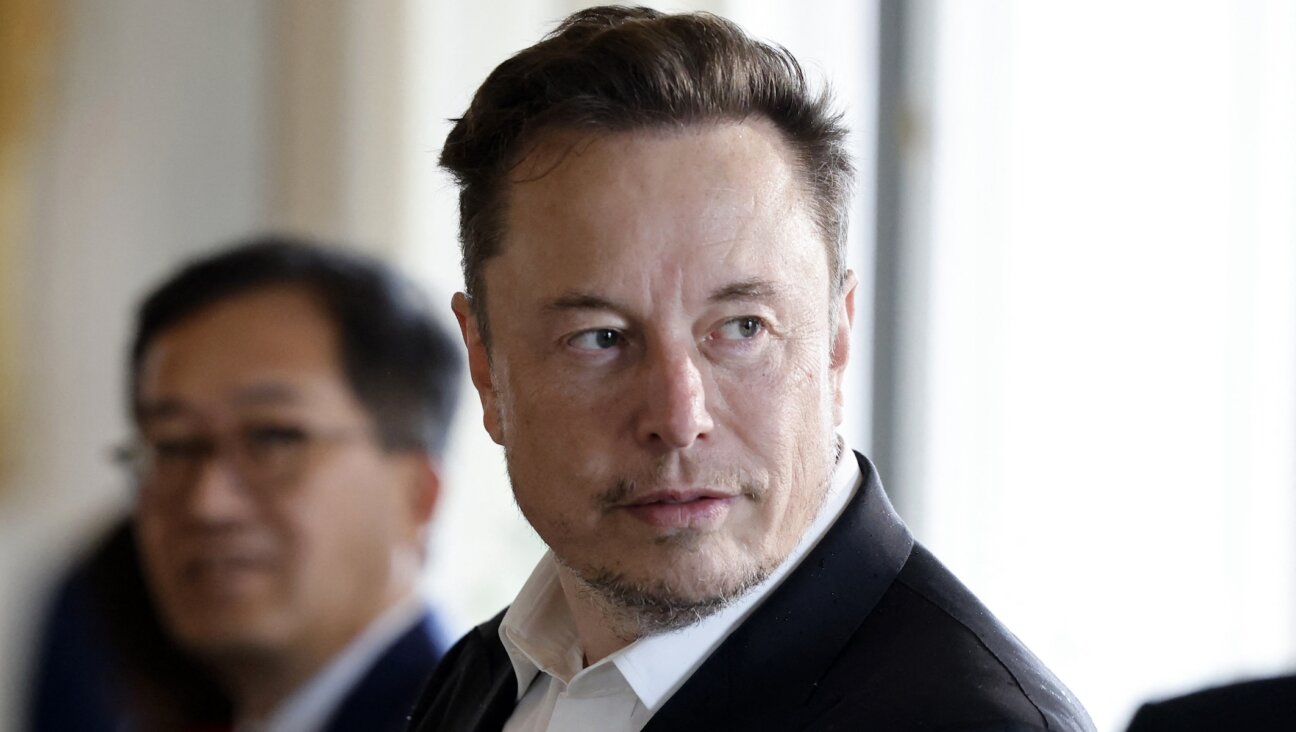COVID-19 vaccines for kids are coming. These rabbis (and their kids) are ready with new prayers.

Aiden Arthurs receives the Pfizer-BioNTech Covid-19 Vaccine at the Jewish Federation/JARC’s offices in Bloomfield Hills, Michigan, May 13, 2021. (Jeff Kowalsky/AFP via Getty Images)
(JTA) — When Rabbi Lisa Gelber heard that the Food and Drug Administration had approved the Pfizer coronavirus vaccine for children ages 5-11, she couldn’t wait for the moment that her daughter would get the shot.
But she also knew her daughter was scared of needles. So she sat down with her daughter, 11-year-old Zahara, and together they composed a kavanah, Hebrew for intention, to reflect the gravity and gratitude with which they viewed this milestone and process the feelings her daughter had about the shot.
“Holy One of life and love, wrap me in a warm embrace as I prepare to receive my COVID-19 vaccine,” the prayer begins. “I give thanks to the doctors and scientists who are creators like you, for the wise people who approved the vaccine, and for everyone who made sure this was available to kids.”
Gelber, the spiritual leader of Congregation Habonim in New York City, shared the full prayer on Facebook, where her friends and colleagues have been circulating it in anticipation of the vaccine’s likely availability for children as soon as the end of this week.
“This feels like a miraculous moment in time. What a gift that this next expansive cohort will have access to a vaccine,” Gelber told the Jewish Telegraphic Agency.
When COVID-19 vaccinations in the United States began in December 2020, there was much discussion of which blessing or Jewish prayer to recite when receiving the shot. Several new prayers were even written specifically for that occasion, with many offering thanks to the scientists who created the vaccines.
Now, children ages 5-11 are set to become eligible to receive the COVID vaccine in the United States in the next few weeks, potentially bringing to an end a period when parents have worried about the risks of activities as basic as sending a child to school or going to the playground. And the moment is being marked by a new set of Jewish prayers, with at least one, as in the case of Gelber and her daughter, even written by a child..
Gelber said her daughter wanted to thank the people who created the vaccine while noting her fear of needles. “Most moving for me was her gratitude for the opportunity to say a blessing which would ‘make me stronger’ and take her mind off of pain,” she said.
Rabbi Karen Reiss Medwed, an assistant dean at the Graduate School of Education at Northeastern University, was first inspired to write a kavanah for receiving a COVID-19 vaccine several months ago when a nurse in her community spoke at their synagogue about the experience of being vaccinated. More recently, Medwed was inspired by her rabbi’s sermon to write a new kavanah specifically for parents to recite before their children receive the vaccine.
“He spoke not only as a rabbi, but as a father, expressing the long awaited relief, as well as the deep religious sense of obligation this next phase of vaccination would bring,” Medwed told JTA in an email, referring to Rabbi Joel Levenson of the Midway Jewish Center in Syosset, New York. “There was no question I had to compose something to recite, just as parents recite a short kavannah upon having the zchut [merit] to arrive with their child to their bnai mitzvah.”
Medwed’s prayer expresses gratitude to God and to those who developed the vaccines and, echoing the “shehecheyanu” prayer recited over a new experience, expresses the relief many parents feel at the opportunity to finally vaccinate their children.
“With this vaccination I let out the long held pause and breath I have been anxiously keeping inside for these long months, and passionately affirm, Blessed are you, Adonai, Ruler of this Universe, who has granted us life, sustained us, and brought us to this moment, and let us all say, Amen,” the prayer reads.
— The post COVID-19 vaccines for kids are coming. These rabbis (and their kids) are ready with new prayers. appeared first on Jewish Telegraphic Agency.
A message from our Publisher & CEO Rachel Fishman Feddersen

I hope you appreciated this article. Before you go, I’d like to ask you to please support the Forward’s award-winning, nonprofit journalism during this critical time.
We’ve set a goal to raise $260,000 by December 31. That’s an ambitious goal, but one that will give us the resources we need to invest in the high quality news, opinion, analysis and cultural coverage that isn’t available anywhere else.
If you feel inspired to make an impact, now is the time to give something back. Join us as a member at your most generous level.
— Rachel Fishman Feddersen, Publisher and CEO





















